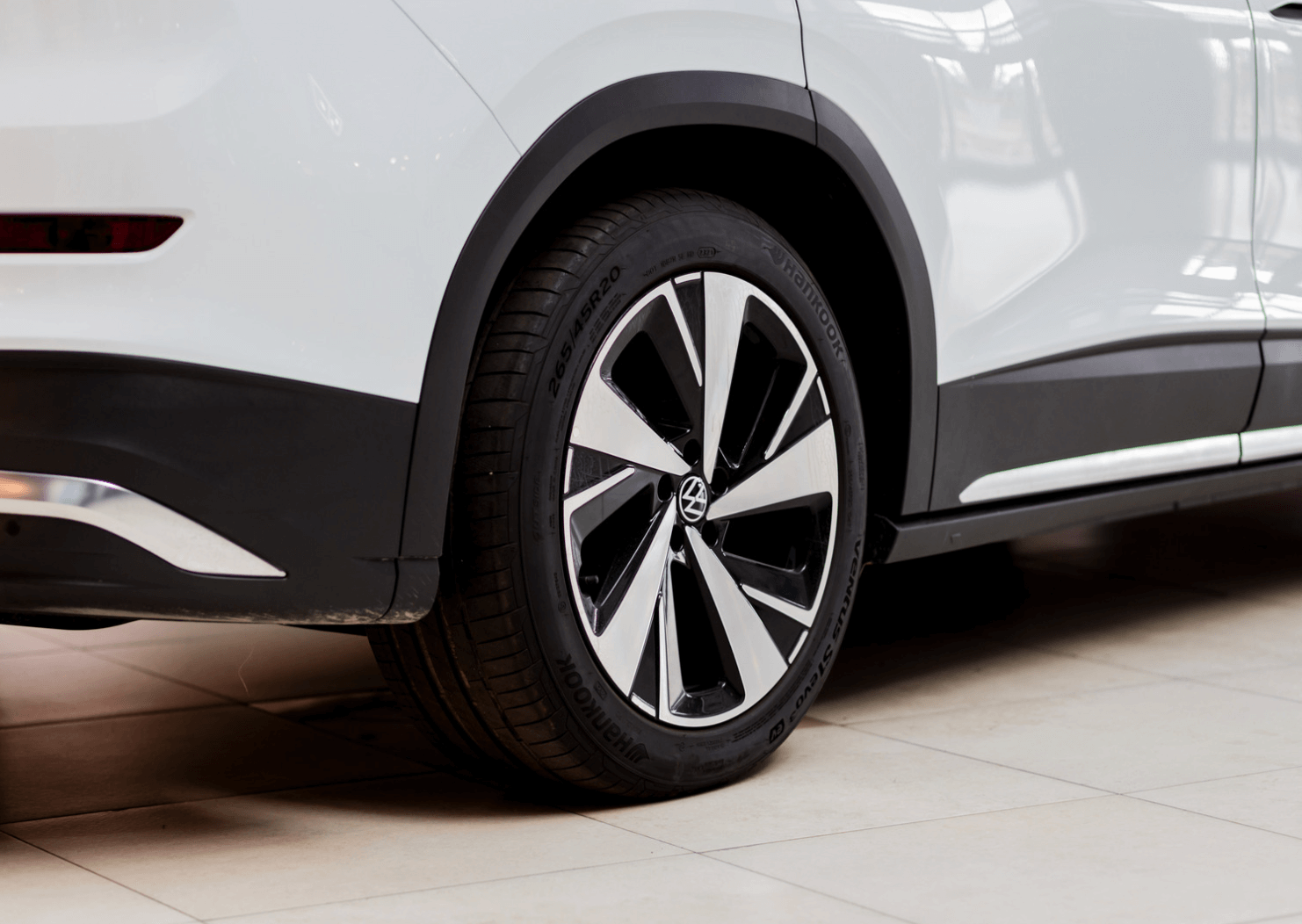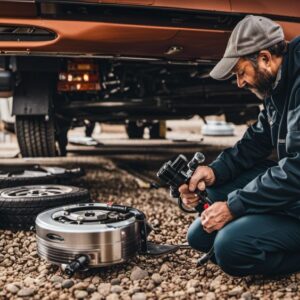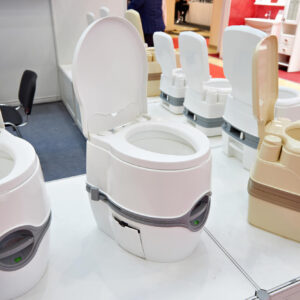Volkswagen vans have been a popular choice for van conversions for decades. With their iconic design and reliable performance, Volkswagen vans are a favourite among van life enthusiasts. But are Volkswagen vans really good for van conversions?
When it comes to choosing a van for a conversion, there are a number of factors to consider. The size and layout of the van, the reliability of the vehicle, and the availability of parts and accessories are all important considerations. Volkswagen vans have a reputation for being well-built and reliable, making them a popular choice for van conversions.
One of the most popular Volkswagen vans for conversions is the classic VW Bus, also known as the Type 2 or Transporter. With its distinctive design and spacious interior, the VW Bus has been a favourite of van life enthusiasts for decades. However, other Volkswagen vans, such as the Transporter T5 and T6, are also popular choices for conversions.
The Appeal of Volkswagen for Van Conversions
When it comes to van conversions, Volkswagen is one of the most popular choices for van lifers and camper enthusiasts. There are a few reasons why Volkswagen vans are so appealing for van conversions.
Compact Size
One of the main appeals of Volkswagen vans is their compact size. The Volkswagen Transporter, for example, is smaller than many other vans, making it easier to manoeuvre and park in tight spaces. This is especially important for those who plan to use their van for travel and exploration, as they may need to navigate narrow roads or park in small campsites.
Reliability
Volkswagen has a reputation for producing reliable vehicles, and this is certainly true for their vans. The engines are known for their durability and longevity, and many Volkswagen vans have been known to last for hundreds of thousands of miles with proper maintenance.
Customisation Options
Volkswagen vans are also popular for van conversions because of the wide range of customisation options available. There are many companies that specialise in converting Volkswagen vans into campers, and there are also many DIY options available for those who want to create their own unique rig.
Popularity
Finally, the popularity of Volkswagen vans means that there is a large community of van lifers and camper enthusiasts who own and love these vehicles. This can be a great resource for those who are new to van life, as there are many forums, blogs, and social media groups dedicated to Volkswagen van conversions.
Overall, Volkswagen vans are a great choice for van conversions due to their compact size, reliability, customisation options, and popularity within the van life community.
Comparing Volkswagen with Other Brands
When it comes to van conversions, Volkswagen is just one of the many brands available in the market. Other popular brands include Ford, Ram Promaster, Nissan, and Mercedes-Benz. In this section, we will compare Volkswagen with other brands to help you make an informed decision.
Ford
Ford is a popular brand for van conversions, with its Ford Transit being a top choice for many. The Transit is known for its reliability, versatility, and affordability. It offers a range of engine options, including a fuel-efficient diesel engine. However, the Transit lacks the style and build quality of Volkswagen vans.
Ram Promaster
The Ram Promaster is another popular brand for van conversions, offering a spacious and versatile cargo area. It has a front-wheel-drive system that provides better traction and handling, making it ideal for driving in snowy or wet conditions. However, the Promaster has a lower payload capacity compared to Volkswagen vans.
Nissan
Nissan offers the NV Cargo as its main van for conversions. It has a spacious cargo area and is known for its reliability and affordability. However, the NV Cargo lacks the style and features of Volkswagen vans.
Mercedes-Benz Sprinter
The Mercedes-Benz Sprinter is a popular choice for luxury van conversions. It offers a range of features, including a high-end interior, advanced safety features, and a fuel-efficient diesel engine. However, the Sprinter is more expensive than Volkswagen vans and may not be a practical choice for budget-conscious buyers.
VW Crafter
The VW Crafter is Volkswagen’s largest van and offers a spacious cargo area and a range of engine options. It has a high-quality build and stylish design, making it a popular choice for van conversions. However, the Crafter may be more expensive than other brands, and its servicing costs may be higher.
In summary, Volkswagen vans offer a stylish design, high-quality build, and a range of engine options, making them a popular choice for van conversions. However, buyers should also consider other brands such as Ford, Ram Promaster, Nissan, and Mercedes-Benz, depending on their specific needs and budget.
Popular Volkswagen Models for Conversion
Volkswagen vans have been a popular choice for camper conversions for decades. Their durability, reliability, and classic style make them a favourite among van life enthusiasts. Here are some of the most popular Volkswagen models for conversion:
VW Bus/Microbus
The VW Bus, also known as the Microbus, is an iconic vehicle that has become synonymous with the hippie movement of the 1960s. It has a classic look and feel that many people find appealing. The VW Bus is a popular choice for van conversions because of its spacious interior and unique style. It is also relatively easy to find parts for and has a large community of enthusiasts.
VW Vanagon
The VW Vanagon is another popular model for camper conversions. It was produced from 1980 to 1991 and is known for its boxy shape and rugged construction. The Vanagon is available in both passenger and cargo versions, making it a versatile choice for conversion. It also has a large following of enthusiasts, which means that finding parts and support is relatively easy.
Volkswagen Westfalia
The Volkswagen Westfalia is a camper van that was produced from the 1950s to the 1990s. It is a popular choice for van conversions because of its classic style and spacious interior. The Westfalia is known for its pop-up roof, which provides additional headroom and sleeping space. It also has a kitchenette and other amenities that make it a comfortable choice for extended trips.
VW Transporter
The VW Transporter is a versatile vehicle that is available in a variety of configurations. It is a popular choice for van conversions because of its spacious interior and reliable performance. The Transporter is available in both passenger and cargo versions, making it a versatile choice for conversion. It is also known for its durability and low maintenance costs.
In conclusion, Volkswagen vans are a popular choice for camper conversions because of their classic style, spacious interiors, and reliability. Whether you choose a VW Bus, Vanagon, Westfalia, or Transporter, you can be confident that you are getting a vehicle that is built to last.
Cost Analysis: New vs Used Vans
When it comes to van conversions, the cost is a crucial factor to consider. One of the first decisions to make is whether to buy a new or used van. Here’s a cost analysis of new vs used vans to help you make an informed decision.
New Vans
New vans are a popular choice for van conversions, especially for those who want to customise their van to their exact specifications. However, new vans come at a higher cost than used ones.
The price of a new van can vary depending on the make and model. For instance, a Volkswagen Crafter can cost between £34,000 to £50,000, while a Mercedes-Benz Sprinter can cost between £33,000 to £55,000.
Used Vans
Used vans are generally more affordable than new ones. They are a great option for those on a budget or looking to save some money. The cost of a used van depends on several factors, including the make and model, age, mileage, and condition.
For example, a used Volkswagen Transporter T5 can cost between £10,000 to £25,000, while a used Mercedes-Benz Sprinter can cost between £5,000 to £30,000.
It is worth noting that used vans may require more maintenance and repairs, which can add to the overall cost. However, if you do your research and choose a well-maintained van, you can save a significant amount of money.
Conclusion
When it comes to cost analysis, used vans are generally more affordable than new ones. However, new vans offer the advantage of customisation and come with a warranty. Ultimately, the decision to buy a new or used van depends on your budget, needs, and preferences.
Essential Features for a Comfortable Van Life
When converting a van for van life, there are a few essential features that you should consider to ensure a comfortable and functional living space. These features include a bed, table, kitchen, sink, fridge, storage, cabinets, water storage, and front seats that swivel.
Bed
A comfortable bed is a must-have for any van conversion. You can choose from a variety of bed designs, including a fixed platform bed, a convertible sofa bed, or a folding bed. The bed should be large enough to accommodate your height and provide enough space for two people to sleep comfortably.
Table
A table is essential for dining, working, or playing games. You can choose from a variety of table designs, including a foldable table that can be stored away when not in use or a table that can be mounted on the side of the van. The table should be sturdy enough to support your activities.
Kitchen
A kitchen is essential for preparing meals and storing food. You can choose from a variety of kitchen designs, including a simple countertop with a camping stove or a full kitchen with a sink, stove, and refrigerator. The kitchen should be designed to maximize counter space and storage.
Sink
A sink is essential for washing dishes and personal hygiene. You can choose from a variety of sink designs, including a simple hand pump sink or a more complex sink with a water pump and grey water tank. The sink should be easy to clean and maintain.
Fridge
A fridge is essential for storing food and drinks. You can choose from a variety of fridge designs, including a portable cooler or a built-in refrigerator. The fridge should be energy-efficient and have enough capacity to meet your needs.
Storage
Storage is essential for keeping your van organized and clutter-free. You can choose from a variety of storage designs, including overhead cabinets, under-bed storage, and hanging organizers. The storage should be designed to maximize space and accessibility.
Cabinets
Cabinets are essential for storing kitchenware, clothing, and other essentials. You can choose from a variety of cabinet designs, including open shelves or closed cabinets with doors. The cabinets should be sturdy and secure.
Water Storage
Water storage is essential for van life. You can choose from a variety of water storage designs, including a portable water container or a built-in water tank. The water storage should be easy to fill and drain.
Front Seats Swivel
Front seats that swivel are essential for creating a comfortable living space in the van. Swivel seats can be used as additional seating or as a part of the living area. The seats should be easy to swivel and lock in place for safety.
In conclusion, incorporating these essential features into your van conversion can help create a comfortable and functional living space for van life.
Luxury and Additional Features
When it comes to van conversions, Volkswagen offers a range of luxury features that can make your van feel like a home away from home. From pop-up roofs to high roofs, Volkswagen vans have a lot to offer in terms of additional features.
One of the most popular luxury features in Volkswagen van conversions is the pop-up roof. This feature allows for additional headroom and sleeping space, making it perfect for families or groups of friends. The pop-up roof is also great for outdoor enthusiasts, as it provides a great view of the stars at night.
Another popular feature in Volkswagen van conversions is the high roof. This feature provides additional headroom and storage space, making it perfect for those who need extra space for gear or equipment. The high roof is also great for off-roading, as it provides additional clearance for rough terrain.
For those who love the outdoors, Volkswagen van conversions offer a range of features that are perfect for camping and exploring. From pop-top roofs to outdoor kitchens, Volkswagen vans have everything you need for your next adventure.
When it comes to layout ideas, Volkswagen van conversions offer a range of options to suit your needs. Whether you need a bed, kitchen, or bathroom, Volkswagen has a layout that will work for you. With so many options to choose from, you can create a van that is truly unique and tailored to your needs.
Overall, Volkswagen vans are a great choice for van conversions. With a range of luxury features and layout options, Volkswagen vans offer everything you need to create a comfortable and functional home on wheels. Whether you’re a weekend warrior or a full-time traveller, Volkswagen vans are the perfect choice for your next adventure.
DIY vs Professional Camper Conversions
When it comes to converting a Volkswagen van into a camper, there are two main options to consider: DIY or professional camper conversions. Each option has its own pros and cons, and the choice ultimately depends on your budget, skills, and time constraints.
DIY Camper Conversions
DIY camper conversions are a popular choice for those who want to save money and have full control over the design and build process. However, it’s important to note that converting a van into a camper is not an easy task and requires a lot of time, effort, and skills. Here are some pros and cons of DIY camper conversions:
Pros
- Cost-effective: DIY camper conversions are generally cheaper than professional conversions, as you won’t have to pay for labour costs and expensive materials.
- Customisation: You have complete control over the design and layout of your camper, so you can create a space that fits your specific needs and preferences.
- Satisfaction: There’s a great sense of satisfaction that comes with creating something with your own hands.
Cons
- Time-consuming: Converting a van into a camper is a time-consuming process that can take several months or even years to complete.
- Skill level: DIY camper conversions require a certain level of skills and knowledge, such as carpentry, electrical work, and plumbing. If you’re not confident in your abilities, you may end up with a subpar conversion.
- Warranty: DIY conversions don’t come with a warranty, so if something goes wrong, you’ll have to fix it yourself.
Professional Camper Conversions
If you don’t have the time, skills, or desire to convert your Volkswagen van into a camper yourself, you can opt for a professional camper conversion. Here are some pros and cons of professional camper conversions:
Pros
- Expertise: Professional conversion companies have the knowledge, skills, and experience to create high-quality camper conversions that meet your specific needs and preferences.
- Time-saving: Professional conversions are generally completed much faster than DIY conversions, as the company has the equipment and personnel to work efficiently.
- Warranty: Professional conversions come with a warranty, so if anything goes wrong, you can get it fixed without having to pay extra.
Cons
- Cost: Professional conversions are generally more expensive than DIY conversions, as you’ll have to pay for labour costs and premium materials.
- Limited customisation: While professional conversion companies can create custom layouts and designs, you may not have as much control over the final product as you would with a DIY conversion.
- Lack of satisfaction: If you’re someone who enjoys creating things with your own hands, a professional conversion may not give you the same sense of satisfaction as a DIY conversion would.
In conclusion, whether you choose a DIY or professional camper conversion for your Volkswagen van depends on your individual needs, skills, and budget. While DIY conversions are generally cheaper and more customisable, they require a lot of time and skills. Professional conversions, on the other hand, are more expensive but offer expertise, time-saving, and warranty benefits.
Power Options: Gas vs Electric Vans
When it comes to powering your van conversion, you have two main options: gas or electric. Each option has its pros and cons, so it’s important to consider your specific needs before making a decision.
Gas Vans
Gas vans are powered by gasoline, which is widely available and easy to refuel. Gasoline engines are also generally more powerful than electric motors, which can be important if you plan to do a lot of driving or towing.
However, gas vans are not as environmentally friendly as electric vans. Gasoline engines produce emissions that contribute to air pollution and climate change. Gas vans are also less efficient than electric vans, which means you’ll spend more money on fuel in the long run.
Electric Vans
Electric vans are powered by electricity, either from a battery or from a solar panel. Electric vans are much more environmentally friendly than gas vans, producing zero emissions during operation. They are also more efficient than gas vans, which means you’ll spend less money on fuel in the long run.
However, electric vans have some limitations. They typically have a shorter range than gas vans, so you’ll need to plan your routes carefully and make sure you have access to charging stations. Electric vans are also generally less powerful than gas vans, which can be a drawback if you plan to do a lot of driving or towing.
In summary, both gas and electric vans have their pros and cons. Gas vans are more powerful and easier to refuel, but they are less environmentally friendly and less efficient than electric vans. Electric vans are more environmentally friendly and more efficient, but they have a shorter range and are generally less powerful. Ultimately, the choice between gas and electric will depend on your specific needs and priorities.
Living Full-Time in a Volkswagen Van
Volkswagen vans, especially the VW Westfalia, have been a popular choice for van life enthusiasts for decades. But can they really hold up to full-time living? Let’s take a closer look.
Full-Time Home
Living full-time in a Volkswagen van can be a great way to downsize and simplify your life. The compact size of the van allows you to have everything you need within arm’s reach, and you can park it virtually anywhere.
However, it’s important to keep in mind that a Volkswagen van is not a traditional home, and it may not be suitable for everyone. The limited space can make it challenging to store all of your belongings, and you may need to get creative with your storage solutions.
Off-Grid
One of the benefits of living in a Volkswagen van is the ability to go off-grid. The van can be outfitted with solar panels and a battery bank, allowing you to power your appliances and electronics without the need for an external power source.
However, it’s important to note that the limited space in a Volkswagen van can make it challenging to install a large enough solar system to power all of your needs. You may need to prioritize your power usage and be mindful of your energy consumption.
Recreational Vehicle
A Volkswagen van can also be a great choice for a recreational vehicle. The compact size makes it easy to navigate through tight spaces and park in small campsites.
However, it’s important to keep in mind that a Volkswagen van may not have all the amenities of a traditional RV. You may need to make some compromises when it comes to things like a bathroom or a kitchen.
Commercial Vehicle
Finally, a Volkswagen van can also be a great choice for a commercial vehicle. The compact size makes it easy to navigate through urban areas, and the van can be outfitted to suit a variety of business needs.
However, it’s important to keep in mind that a Volkswagen van may not have the same cargo capacity as a larger commercial vehicle. You may need to prioritize your cargo and be mindful of your weight distribution.
In conclusion, a Volkswagen van can be a great choice for full-time living, off-grid living, recreational use, or commercial use. However, it’s important to keep in mind that a Volkswagen van may not be suitable for everyone, and you may need to make some compromises when it comes to space and amenities.




